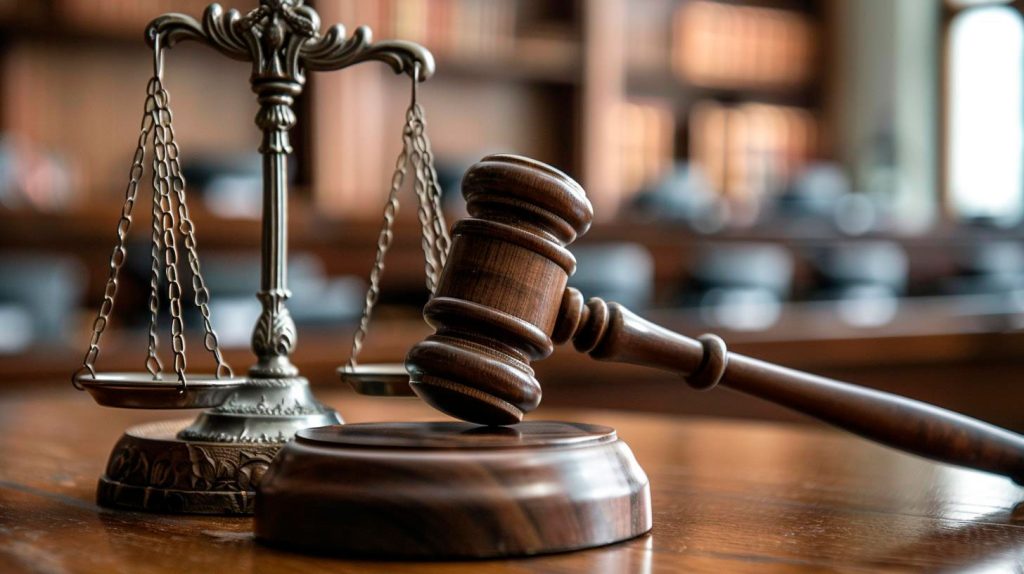
State-Specific Credit Repair Laws What You Need to Know based on Your Location
In this article, we will explore the state-specific credit repair laws that you need to be aware of based on your location.
California
California has some of the most consumer-friendly laws when it comes to credit repair. The state prohibits credit repair companies from charging upfront fees for their services. Additionally, credit repair organizations in California must provide clients with a written contract that includes detailed information about the services being offered, the total cost, and the duration of the contract.
Furthermore, California law requires credit repair companies to inform clients of their right to cancel the contract within five days of signing it. This cooling-off period allows consumers to reconsider their decision to use credit repair services without penalty.
Texas
In Texas, credit repair companies are required to register with the Texas Secretary of State and post a surety bond of $10,000. Additionally, Texas law prohibits credit repair organizations from making false claims or statements about their services, including guarantees of specific credit score increases.
Consumers in Texas are also protected by the state’s Credit Services Organization Act, which regulates the credit repair industry and prohibits deceptive practices. Under this law, credit repair companies in Texas must provide clients with a written contract that clearly outlines the services being offered and the total cost.
Florida
Florida has strict regulations in place to protect consumers from predatory credit repair practices. Credit repair companies in Florida are prohibited from charging upfront fees for their services and must wait until services have been provided before accepting payment.
Additionally, Florida law requires credit repair organizations to inform clients of their right to dispute inaccurate information on their credit reports. This ensures that consumers have the opportunity to correct errors that may be negatively affecting their credit scores.
Regardless of where you live, it’s important to familiarize yourself with the credit repair laws in your state to ensure that you are receiving honest and reputable services. By understanding your rights as a consumer, you can make informed decisions about credit repair and take control of your financial future.
The Credit Repair Organizations Act Regulations for Credit Repair Companies
What is the Credit Repair Organizations Act?
The Credit Repair Organizations Act, passed in 1996, is a federal law that regulates credit repair companies and ensures that consumers are not taken advantage of by fraudulent practices. Under the CROA, credit repair companies are required to provide certain disclosures to clients, follow specific guidelines when disputing inaccurate information on credit reports, and refrain from making false promises about improving credit scores.
By following the regulations outlined in the CROA, credit repair companies can establish trust with their clients and operate ethically within the industry. This not only benefits consumers but also helps protect the reputation of legitimate credit repair businesses.
Key Regulations of the CROA
There are several key regulations outlined in the Credit Repair Organizations Act that credit repair companies must adhere to. Some of the most important regulations include:
- Providing clients with a written contract that outlines the services to be provided and the terms of payment.
- Informing clients of their right to cancel the contract within three business days without penalty.
- Prohibiting credit repair companies from making false claims about their ability to remove negative information from a credit report.
- Requiring credit repair companies to provide clients with a copy of the “Consumer Credit File Rights Under State and Federal Law” before any contract is signed.
By following these regulations, credit repair companies can protect themselves from legal action and ensure that they are providing ethical and effective services to their clients.
Benefits of Compliance with the CROA
Compliance with the regulations outlined in the Credit Repair Organizations Act offers several benefits to credit repair companies. By operating within the law, companies can build a positive reputation within the industry and attract more clients. Additionally, compliance with the CROA can help protect companies from legal action and fines.
Furthermore, following the regulations of the CROA helps to build trust with clients, as they can be confident that the services provided by the credit repair company are legitimate and effective. This trust can lead to repeat business and referrals, ultimately helping the company grow and succeed in the competitive credit repair industry.
Industry Statistics on Credit Repair
According to a study conducted by the Consumer Financial Protection Bureau, over 10 million Americans have at least one error on their credit report that could affect their credit score. This highlights the importance of credit repair services in helping consumers improve their financial standing and access better loan terms.
Additionally, the credit repair industry is projected to grow significantly in the coming years, with an expected annual growth rate of 5.2% from 2021 to 2026. This growth presents a lucrative opportunity for credit repair companies that are able to comply with regulations and provide valuable services to consumers.
Understanding and adhering to the regulations outlined in the Credit Repair Organizations Act is essential for credit repair companies looking to operate ethically and effectively within the industry. By following the guidelines set forth by the CROA, companies can protect themselves from legal action, build trust with clients, and ultimately grow their business in a competitive market.
The Fair Credit Reporting Act: Understanding Your Rights as a Consumer
Here, we will discuss the key provisions of the FCRA and how it impacts you as a consumer.
What is the Fair Credit Reporting Act?
The Fair Credit Reporting Act (FCRA) was enacted in 1970 to ensure the accuracy and fairness of credit reporting by consumer reporting agencies. It sets out guidelines for the collection, dissemination, and use of consumer credit information. The FCRA also gives consumers the right to access their credit reports, dispute inaccurate information, and seek damages for violations of the law.
Key Provisions of the FCRA
- Access to Your Credit Report: Under the FCRA, you have the right to request a free copy of your credit report from each of the three major credit bureaus – Equifax, Experian, and TransUnion – once every 12 months.
- Disputing Inaccurate Information: If you find inaccuracies in your credit report, you have the right to dispute them with the credit bureau. They are required to investigate your dispute and correct any errors within a reasonable timeframe.
- Privacy and Security of Information: The FCRA requires consumer reporting agencies to maintain strict security measures to protect the confidentiality of consumer information and prevent unauthorized access.
- Limitations on Who Can Access Your Credit Report: The FCRA restricts who can access your credit report and for what purposes. Generally, only those with a permissible purpose, such as lenders, insurers, and employers, can access your credit report.
- Right to Opt-Out of Pre-Screened Offers: The FCRA gives consumers the right to opt-out of receiving pre-screened offers of credit and insurance based on information in their credit reports.
Benefits of the FCRA for Consumers
Understanding your rights under the FCRA can help protect you from identity theft, inaccuracies in your credit report, and unfair practices by consumer reporting agencies. By regularly monitoring your credit report and disputing any errors, you can ensure that your creditworthiness is accurately reflected.
- Identity Theft Protection: The FCRA enables consumers to monitor their credit reports for any signs of identity theft, such as unauthorized accounts or inquiries.
- Accurate Credit Reporting: By disputing inaccuracies in your credit report, you can ensure that your credit score is based on correct information, leading to better credit opportunities.
- Enforcement of Consumer Rights: The FCRA provides consumers with legal remedies for violations of their rights, including the right to seek damages in court.
The Fair Credit Reporting Act is a crucial law that protects consumers’ rights to accurate and fair credit reporting. By understanding your rights under the FCRA and taking proactive steps to monitor your credit report, you can ensure that your credit information is accurate and secure. If you believe that your rights under the FCRA have been violated, it is important to consult with a qualified lawyer who specializes in consumer protection laws.
The Truth in Lending Act Protections for Borrowers and Credit Users
By understanding the provisions of TILA, borrowers can make more informed decisions when taking out loans or using credit.
Key Provisions of the Truth in Lending Act
One of the key provisions of TILA is the requirement for lenders to provide clear and accurate disclosure of key terms and costs associated with credit transactions. This includes information on the annual percentage rate (APR), finance charges, and total amount of credit. By providing this information in a clear and understandable manner, borrowers can better compare loan offers and make informed decisions about their credit options.
Another important provision of TILA is the right of rescission, which allows borrowers to cancel certain types of credit transactions within a specified period of time. This gives borrowers the opportunity to reconsider their decision and avoid entering into a potentially harmful credit agreement.
TILA also protects borrowers from certain unfair or deceptive practices by lenders, such as charging excessive fees or misrepresenting the terms of a loan. By prohibiting these practices, TILA helps to ensure that borrowers are treated fairly and have access to accurate information when making credit decisions.
Benefits of TILA for Borrowers and Credit Users
One of the key benefits of TILA for borrowers is the increased transparency and disclosure of key terms and costs associated with credit transactions. By providing clear and accurate information, borrowers can better understand the terms of their loans and avoid surprises down the line.
TILA also gives borrowers the right to cancel certain types of credit transactions within a specified period of time, providing them with an added layer of protection and the opportunity to reconsider their decisions. This can be especially beneficial in situations where borrowers may have been pressured into taking out a loan or credit agreement.
Another benefit of TILA is the protection it offers against unfair or deceptive practices by lenders. By prohibiting these practices, TILA helps to ensure that borrowers are not taken advantage of and that they have access to accurate information when making credit decisions.
Statistics on Credit Card Debt in the United States
According to a report by the Federal Reserve, the total outstanding credit card debt in the United States reached $930 billion in 2020. This staggering amount of debt highlights the importance of laws such as TILA, which aim to protect borrowers and ensure that they are able to make informed decisions about their credit options.
Furthermore, a survey by the National Foundation for Credit Counseling found that 35% of U.S. adults have credit card debt that has been carried over for at least two years. This demonstrates the need for regulations like TILA to help borrowers navigate the complex world of credit and ensure that they are not taken advantage of by lenders.













Absolutely. You can start by reviewing your credit report for any errors and disputing inaccurate information. Paying your bills on time, keeping your credit card balances low, and avoiding opening too many new accounts can also help improve your credit score over time.
The CARD Act primarily focuses on credit card issuers and how they can operate. It doesn’t directly impact credit repair, but it does promote transparency and fairness in credit card practices, which can indirectly benefit consumers looking to repair their credit.
What kind of penalties can credit repair companies face if they violate the CROA or other credit repair laws?
I keep hearing about the Fair Credit Reporting Act (FCRA). What’s that all about?
I’ve heard about the statute of limitations on credit reporting. Does that apply to credit repair laws?
Wait, so are all credit repair companies bad? What if I actually need help fixing my credit score?
Do the credit repair laws vary from state to state, or are they the same nationwide?
If you believe you’re a victim of identity theft, you should immediately report it to the credit reporting agencies and place a fraud alert on your credit report. You may also want to file a police report and work with the Federal Trade Commission to resolve any issues with your credit.
Not all credit repair companies are bad, but you gotta be careful. Make sure they’re following the CROA guidelines and not making false promises. It’s always a good idea to do your research and read reviews before signing up with a company.
Credit repair companies can face serious penalties for violating the CROA or other credit repair laws, including fines, lawsuits, and even criminal charges in some cases. It’s important for consumers to report any fraudulent or deceptive practices by credit repair companies to protect themselves and others in the future.
Yeah bro, I heard there’s some new credit repair laws that are gonna shake things up. What’s the deal with those? Well, let me tell you. The Credit Repair Organizations Act (CROA) is one of the main laws you gotta know about. It protects consumers from shady credit repair companies that promise to fix your credit but end up just taking your money.
Credit repair companies can help you dispute inaccurate items on your credit report, but they can’t guarantee that they’ll be removed. It ultimately depends on the accuracy of the information being reported. It’s always best to work on improving your credit habits to see real, long-term results.
The FCRA is another important law to be aware of. It regulates how credit reporting agencies can collect and report your credit information. It gives you the right to dispute inaccurate information on your credit report and makes sure your credit history is accurate and fair.
What about the Credit Card Accountability Responsibility and Disclosure (CARD) Act? How does that affect credit repair?
Are there any specific steps I can take to improve my credit score on my own without hiring a credit repair company?
Can the credit repair companies really remove negative items from my credit report?
While federal laws like the CROA and FCRA apply nationwide, some states may have additional regulations or requirements for credit repair companies. It’s important to be aware of both federal and state laws to make sure you’re protected and following the right protocols when repairing your credit.
What should I do if I suspect I’m a victim of identity theft and it’s affecting my credit score?
The statute of limitations on credit reporting limits how long negative items can stay on your credit report. Once the time period has passed, the items should be removed automatically. However, credit repair laws like the FCRA still apply, so it’s important to understand your rights and follow proper procedures to dispute inaccuracies.